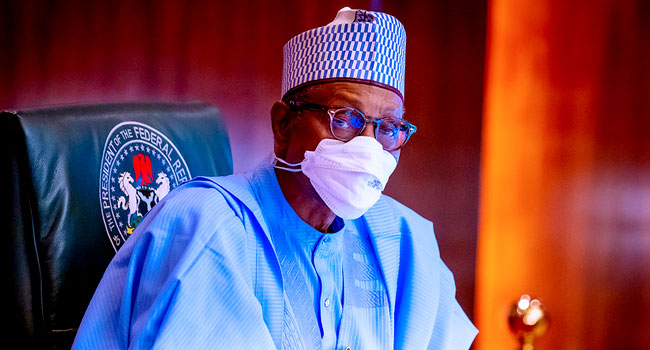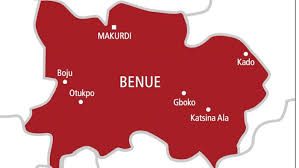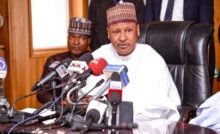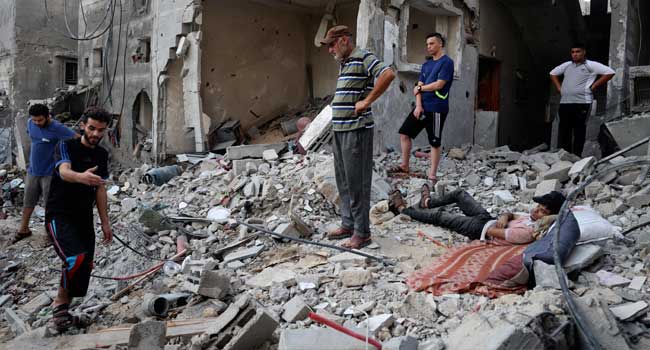President Muhammadu Buhari has approved sanctions for those responsible for the importation of off-spec petrol into the country, TheCable understands.
In February, the president had ordered that “producers and providers” of the petrol with methanol quantity above Nigeria’s specification, which was recently imported into the country, must be held accountable.
This was after the Nigerian Midstream and Downstream Petroleum Regulatory Authority (NMDPRA) confirmed that petrol with methanol quantity above Nigeria’s specification was discovered in the supply chain.
According to a source in the presidency, the decision on sanctions was taken at the last federal executive council (FEC) meeting presided over by Vice-President Yemi Osinbajo.
The source said Buhari approved a plan, which included provisions for sanctions for those who responsible for the importation of the off-spec petrol.
“The plan is designed to do everything necessary to end the scarcity quickly and hold those responsible for it in the first instance responsible to avoid a repeat,” the source said.
“The plan, which was presented to FEC last week, had been signed off previously by President Muhammadu Buhari before he left the country last week Sunday with clear goals that included a conclusive determination on the initial cause of the scarcity with attendant consequences imposed.
“Indeed, under the Buhari administration, what used to be an incessant and recurring decimal of fuel scarcity had been reduced to its barest minimum until the recent case of adulterated PMS, an incident that incurred the president’s wrath.
“But the plan drawn up by the NNPC executives had won the endorsement of the president and the praise of the VP, especially because of the 24-hour round-the-clock operations, including 24-hour sales in major supply centres in the country and the 24-hour continuous loading at all depots coordinated personally by Mele Kyari, group managing director, with the active participation of Yusuf Bichi, director-general of the DSS.
“The 24-hour operations also have an enforcement element with monitoring teams to prevent any act of sabotage and ensure smooth operations.
“That 24-hour operation also included the direct participation and support of members of the Major Oil Marketers Association of Nigeria, Independent Petroleum Marketers Association of Nigeria, and private depot owners.”







